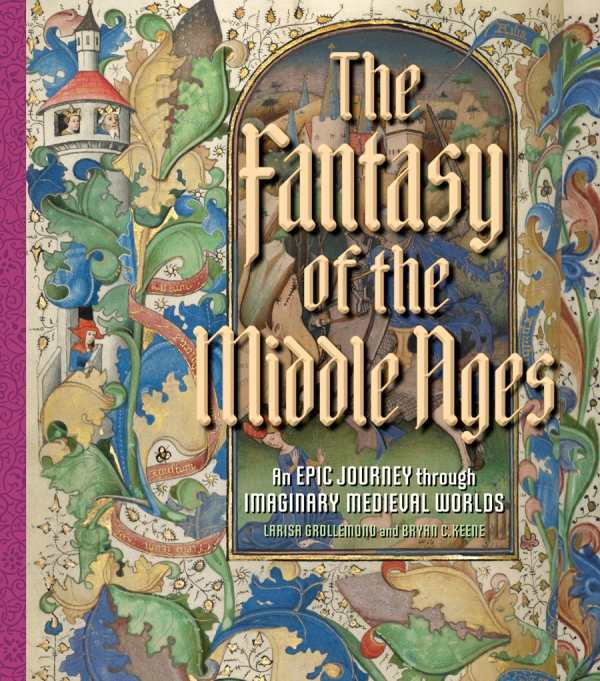The Fantasy of the Middle Ages
An Epic Journey through Imaginary Medieval Worlds
Larisa Grollemond and Bryan C. Keene’s The Fantasy of the Middle Ages is a comprehensive, inclusive analysis of the many ways in which the Middle Ages inform popular culture.
The book tackles the topic of medievalism: how materials from the Middle Ages are interpreted throughout creative media. While the Middle Ages spanned from 500-1500 CE, their diverse and global nature is often elided by contemporary creators, who depict them as populated by white, Christian, heterosexual people. But the book notes that the Middle Ages were not a monolith in terms of religion, race, and gender roles. Tackling topics such as stereotypical characters like knights, Grollemond and Keene disprove a variety of assumptions, demonstrating how they play out in recreations from Disney films to Dungeons and Dragons.
Film history and costume design are among the subjects covered, along with popular media ranging from The Lord of the Rings to Game of Thrones. The book features the Grimm Brothers and other Romantic-era folklore collectors whose work popularized nostalgia for the mythic and the medieval, along with the writers and filmmakers whose hands shaped Arthurian legends, marking nearly a millennium of fascination with the tragic tale. Fantasy literature takes its rightful place as a major subject, as do the exploits of historical reenactors and the white supremacists who coopted the entire time period for their nefarious purposes.
Colorful illustrations pepper the book, illuminating concrete links between historical sources and contemporary renditions. Throughout, it balances scholarship with accessibility, a feat as rare as that of the dragon-slayers discussed within its pages.
The Fantasy of the Middle Ages is provocative and thorough, accounting for the nostalgic lens of medievalism while arguing that medieval-inspired stories remain relevant because their fantasies reveal modern identities.
Reviewed by
Jeana Jorgensen
Disclosure: This article is not an endorsement, but a review. The publisher of this book provided free copies of the book to have their book reviewed by a professional reviewer. No fee was paid by the publisher for this review. Foreword Reviews only recommends books that we love. Foreword Magazine, Inc. is disclosing this in accordance with the Federal Trade Commission’s 16 CFR, Part 255.

